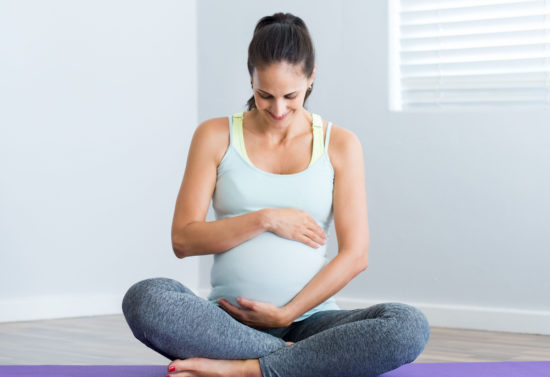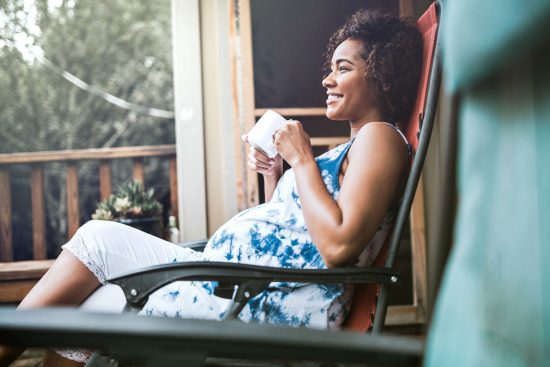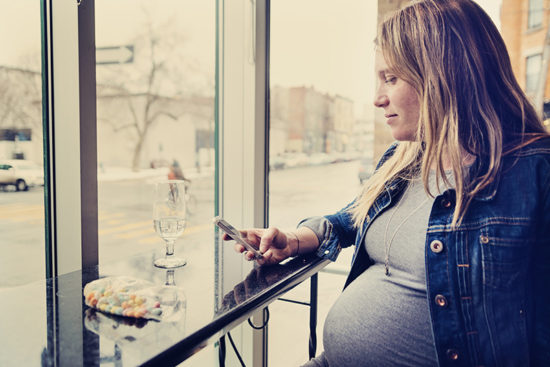We put your questions about vaccination during pregnancy and breastfeeding to experts from the NHS, Public Health England and the RCOG.

Whether or not you should have the vaccination when you’re pregnant or breastfeeding is a topic our community has lots of questions about. So our Director of Impact and Engagement, Sarah McMullen, put some of the questions we’d asked you to send in to a panel of experts on the subject.
They were Dr Pat O’Brien, Vice President of the Royal College of Obstetricians and Gynaecologists, Professor Jacqueline Dunkley-Bent, Chief Midwifery Officer in England, Dr Gayatri Amirthalingam, a Consultant Medical Epidemiologist from Public Health England, and Dr Pavan Minhas, a doctor of obstetrics and gynaecology.
Watch our video of the chat below, and read the answers to some common questions about the vaccination.

All pregnant women over the age of 18 can have the Covid-19 vaccination.
If you’re under 18, it is also being offered to all pregnant women who are clinically extremely vulnerable. This is because their underlying condition puts them at a higher risk of experiencing serious complications of Covid-19.
The vaccine is also being offered to pregnant women under 18 who are frontline health or social care workers, including carers in residential homes. This is because their risk of exposure to Covid-19 is higher.
There may be other health and personal factors which mean you’re offered the vaccine before the rest of your age group.
You can find further information on this Royal College of Obstetricians and Gynaecologists (RCOG) info sheet which is there to help you make a personal decision. You can also discuss the benefits and risks of vaccination in pregnancy with a health clinician on an individual basis.
Further information can be found on the RCOG website.
Although clinical trials involving pregnant women in the UK are just starting, around 90,000 women in the US have been vaccinated with mRNA vaccines (these include the Pfizer BioNTech and Moderna vaccines). There haven’t been any safety concerns reported following these vaccinations.
Therefore, the JCVI has said that all pregnant women should be offered the Pfizer BioNTech or Moderna vaccines when they are rolled out to the wider population. Anyone who is expecting a baby can make their own decision on the benefits and risks.
Some pregnant women may become very unwell if they catch Covid-19, especially towards the end of their pregnancy.
The vaccination should work and is considered safe at whatever stage of pregnancy you are in.
Some pregnant women have said they’d rather wait until after 12 weeks. However, as Covid-19 can be more serious in later pregnancy, it would then be important to have the vaccination soon after and before the third trimester.
If you are pregnant and over 18, you can log onto the NHS website and book a vaccination.
On the national booking page, there is an option to say that you are pregnant. This will mean you are offered an appointment at a centre with the type of vaccinations recommended for pregnancy. You can then discuss the risks and benefits of vaccination with your doctor or nurse.
The Covid-19 vaccines we use in the UK are not ‘live’ and so do not cause a Covid-19 infection in you or your baby. What’s more, studies of the vaccine on pregnant animals haven’t shown any signs that the vaccine harms the pregnancy or fertility.
Because mRNA jabs, such as the Pfizer BioNTech and Moderna vaccines, have been used for 90,000 pregnant women in the US without safety concerns, the JCVI is recommending that these vaccines should preferably be offered to pregnant women.

This is rather than the AstraZeneca vaccine, which hasn’t been given in the US. Although there is no evidence to suggest it is unsafe to give to pregnant women, the JCVI says more research is needed.
At the same time, the government had also advised that people under 30 should be offered an alternative vaccine to the AstraZeneca vaccine because of the benefit to risk ration of that group. This is because of the reports that about four (non pregnant) people have experienced serious blood clots for every million doses of this vaccine.
Pregnancy can make you more liable to blood clots, so you should discuss with your healthcare professional whether the benefits of a vaccination outweigh the risks.
You shouldn’t be put under any pressure to have the vaccine or not have the vaccine. If you chose not to have the vaccine, you should still continue be given the same protections for at-risk groups, such as being allowed to work in a different place.
You may find the decision on whether or not to get vaccinated an emotional and difficult one to make. But be aware that many messages on online and other forums are based on individual opinion and not on scientific evidence.
Speak to a health professional about the vaccine to get up-to-date and reliable guidance. This RCOG info sheet can also help you make an informed decision.
You can find more reliable information on pregnancy and the vaccine on the RCOG website, the government website and the Tommy’s website.
If you’re breastfeeding and wondering if it’s safe to have the Covid-19 vaccine, read our article here.
See all our information on pregnancy and parenthood and coronavirus.
Our Walk & Talks are helping parents feel connected during the pandemic. Check your local NCT branch Facebook page to see if they’re happening in your area, or find out more here.